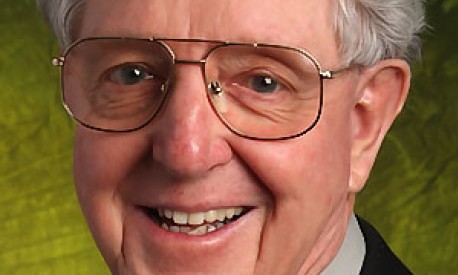The Occupy Wall St movement is being criticised by some as a crowd of malcontents having no solutions to offer to the problems they are protesting about. To start with they were portrayed as a movement that objected to what they deemed to be unfair bank regulations. Two months down the track, the novelty has dimmed, the objectives seem more diffuse, the passion is waning and disillusionment is setting in. Their opponents are labelling them as idealistic and impractical.
But Gerald Arbuckle says that the protesters are “neither unrealistic nor impractical.” He says they are receiving support from two sources that come from “opposite ends of society.”
Read Gerald Arbuckle’s Blog.
It is rare these days to hear good news about the global economy. We still fear that another world recession will smother us. We do not trust the banking world. We know that the rich are getting richer, the poor poorer. On the global scene capitalism is ruling with less and less controls and concern for the common good.
But there are two small, but remarkable, signs that people are not giving up hope. And surprisingly they come from opposite ends of society.
The first challenging glimmer of hope is Occupy Wall Street and its many supporting groups around the world. On our television screens we see, for example, occupiers at Zuccotti Park, New York, and groups of people huddled together under small, fragile tents outside St Paul’s cathedral, London. In Zuccotti Park people have congregated on an inhospitable concrete space right in the middle of the nation’s top financial district. St Paul’s is also close to London’s financial centre. These people surely are utopian dreamers, dreaming of a society that no longer marginalises the poor and controls the greed of the rich.
It is so easy to dismiss the protesters as impractical and unrealistic. But anyone acquainted with Catholic social thinking recognizes that our principles of social justice conform in no small way with the aspirations of the protesters.
A recent report on what is happening at Zuccotti Park contains some deeply moving incidents. The park certainly attracts the homeless and mentally ill who benefit from the free meals and company. This raises serious questions for the protesters. What should they do? Remove them?
But one spokesperson answered for the rest: “We decided we would not marginalise these people like the rest of society does. I guess, we’ve created own welfare state, and I mean that in the best sense of the term.” She and others have organised for drug counsellors and social workers to offer help for these people. What example! Before we rush to condemn these protesters around the world, let us ask ourselves this question: What are we doing to live out the Gospel imperative to work with people on the margins of society, as many protesters are doing? These people are rightly annoying our conscience.
The second tiny sign of hope is contained in two recent articles in, of all places, The Harvard Business Review. Among a small group of influential thinkers and business people there is a growing recognition that the primary purpose of business is not to make money – the more the better. They believe that in business institutions society and people are not something to be accidentally added to what they are doing, but they should be at the very centre of their concern. They believe that their firms must be more than agents for creating profit. Rather their core mission calls them also to be instruments for achieving societal purposes and for providing significant livelihoods for those who work in them and surrounding society. They are prepared to spend time, talent, and resources on national and community projects in which people are prepared to work together for the common good.
Corporate social responsibility, in brief, is to be integral to all project planning and implementation. This is surely a quiet revolution. Unrestrained capitalism is being turned upside-down – at last! As in the case of Occupy Wall Street movements this revolution in thinking – technically termed “creating shared value” – on the part of some business firms, even major ones – is thoroughly in line with our Catholic social principles.
The authors of the articles give examples of business firms that are beginning to place social responsibility at the heart of their operations, not as something on the periphery: IBM, Nestle, Unilever, Procter & Gamble. But they warn that “our understanding of the potential of shared value is just beginning.”
Readers may be interested in reading the articles in The Harvard Business Review: Michael E.Porter, “Creating Shared Value,” (January 2011), and Rosabeth Moss Kanter, “How Great Companies Think Differently: Instead of Being Mere Money-Generating Machines, They Combine Financial and Social Logic to Build Enduring Success,” (November 2011).
Gerald A. Arbuckle, sm, an anthropologist, and recently a Government appointed member of the Independent Panel to oversee the value-based reform of the NSW public hospital system. He is author of Healthcare Ministry: Refounding the Mission in Tumultuous Times (2000).
Image: Society of Mary New Zealand
Additional reading
News category: Analysis and Comment.




